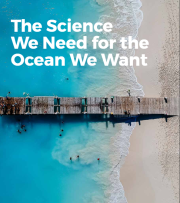
- Home
- Our Work
We provide scientific and technical advice on the development, planning and implementation of the activities of the Sub-Commission.
- UN Ocean Decade
- UN 21: Marine Spatial Planning
- UN 22: Stem of Asia’s Riverine Plastic Emission
- UN 23: Accelerating the Capacity Development Transformations: Regional Network of Training and Research Centers
- UN 24: Explore the Strongest Ocean Current in the Western Pacific: CSK2
- News
- Events
Discover the latest and up-to-date news and headlines from all over the WESTPAC region
- Resources
We serve as a unique international platform to advance marine scientific knowledge, and catalyze multi and cross-disciplinary collaborations among its Member States
- About Us
We promote international cooperation and to coordinate programmes in marine research, ocean observations and services
Contact Us

IOC Sub-Commission for the Western Pacific (WESTPAC)
Advancing knowledge and cooperation for a healthy ocean and prosperous society

- Home
- Our Work
We provide scientific and technical advice on the development, planning and implementation of the activities of the Sub-Commission.
- UN Ocean Decade
- UN 21: Marine Spatial Planning
- UN 22: Stem of Asia’s Riverine Plastic Emission
- UN 23: Accelerating the Capacity Development Transformations: Regional Network of Training and Research Centers
- UN 24: Explore the Strongest Ocean Current in the Western Pacific: CSK2
- News
- Events
Discover the latest and up-to-date news and headlines from all over the WESTPAC region
- Resources
We serve as a unique international platform to advance marine scientific knowledge, and catalyze multi and cross-disciplinary collaborations among its Member States
- About Us
We promote international cooperation and to coordinate programmes in marine research, ocean observations and services
Contact Us
Our Programme
Ocean Acidification
What is the issue?

News
Events
National Ocean Acidification Training Workshop for Thailand
02 - 04 November 2022
National Ocean Acidification Training Workshop for Vietnam
13 - 15 October 2022
National Ocean Acidification Training Workshop for Malaysia
20 - 22 September 2022
WESTPAC Webinar Series on Ocean Acidification
05 - 26 May 2021
Why is it important?
According to geological records, present ocean acidity change is occurring at a rate approximately ten times faster than anything experienced during the last 300 million years. This rapid change is jeopardizing the ability of ocean ecosystems, including those calcifying marine organisms, to adapt themselves to an acidifying environment.

Although more knowledge on the impact of ocean acidification and ecosystem responses to it are needed, the increased acidity has been demonstrated to have severe impacts on many organisms that make up the complex and productive food web, especially these carbonate-dependent or calcifying species such as oysters, clams, reef-building corals and calcareous plankton. Changes in species growth and reproduction, as well as the structure and function of ocean ecosystems, will poses a great threat to ocean-based food security, and increase vulnerability to climate change and disasters.
Given the far-reaching impact that ocean acidification has been generating on many ocean related benefits to society, the United Nations called upon the international community to take concrete and collective actions addressing ocean acidification and its impact, as articulated in the Sustainable Development Goal (SDG 14.3) to “minimize and address the impacts of ocean acidification, including through enhanced scientific cooperation at all levels.”
News
Events
National Ocean Acidification Training Workshop for Thailand
02 - 04 November 2022
National Ocean Acidification Training Workshop for Vietnam
13 - 15 October 2022
National Ocean Acidification Training Workshop for Malaysia
20 - 22 September 2022
WESTPAC Webinar Series on Ocean Acidification
05 - 26 May 2021
What we do in the Western Pacific and adjacent areas?
The Western Pacific and its adjacent areas is the most densely populated region with the richest level of marine biodiversity and endemism in the world. The region is home to more than 75 percent of all known coral species, 50 percent of the world’s coral reefs, and at least 3,000 fish species. People and countries have been relying directly on ocean for food, and job opportunities. For instance, Most Southeast Asian coastal communities are socially and economically dependent upon coral reef ecosystems with an estimated 70-90% of fish caught dependent on coral reefs. Ocean acidification poses a great threat to the ocean sustainability, livelihoods, well-being and prosperity of all.
Despite the global increasing recognition on ocean acidification and its threat to ocean-based food security, the awareness still remains rather limited and the ecosystem responses to ocean acidification are poorly understood in the region. To enable resource and fisheries managers, and policy makers to develop effective long-term mitigation and adaptation strategies, sustained research, monitoring and assessment are critically needed to develop meaningful projections on future impacts of ocean acidification on marine ecosystems in the region.
To this end, the IOC Sub-Commission for the Western Pacific (WESTPAC) seeks to support our member states in the region preparing for and responding to ocean acidification, by improving research capacity, transferring marine technology, and advancing our understanding on ocean acidification and its impacts on ocean ecosystems.
The Sub-Commission initiated the establishment of a sustained research and monitoring network on ocean acidification, by conducting a dedicated session to ocean acidification at the 9th WESTPAC International Marine Science Conference (April 2014, Nha Trang, Vietnam). Subsequently the ocean acidification programme was officially established as an official programme of the Sub-Commission at its 10th Intergovernmental Session (WESTPAC- X, May 2015, Phuket Thailand). Since then, the Sub-Commission has been driving and coordinating the development of in the Western Pacific and its adjacent regions, which was later recognized as one regional component of the Global Ocean Acidification Observing Network (GOA-ON).
Our current efforts focus on developing a programme to monitor the impacts of ocean acidification on coral reef ecosystems. This programme has been developed since early 2015, mainly through the ff:
News
Events
National Ocean Acidification Training Workshop for Thailand
02 - 04 November 2022
National Ocean Acidification Training Workshop for Vietnam
13 - 15 October 2022
National Ocean Acidification Training Workshop for Malaysia
20 - 22 September 2022
WESTPAC Webinar Series on Ocean Acidification
05 - 26 May 2021
What We Do
How to cite articles on the website?
The following are examples of how to cite articles on this website:
Web page with known publication date
WESTPAC. Ocean Acidification: What is the issue?. IOC Sub-Commission for the Western Pacific website, https://ioc-westpac.org/oa/, 27/09/22.
Web page with unknown publication date
WESTPAC. Ocean Acidification: What is the issue?. IOC Sub-Commission for the Western Pacific website, https://ioc-westpac.org/oa/, accessed on 27/09/22.









